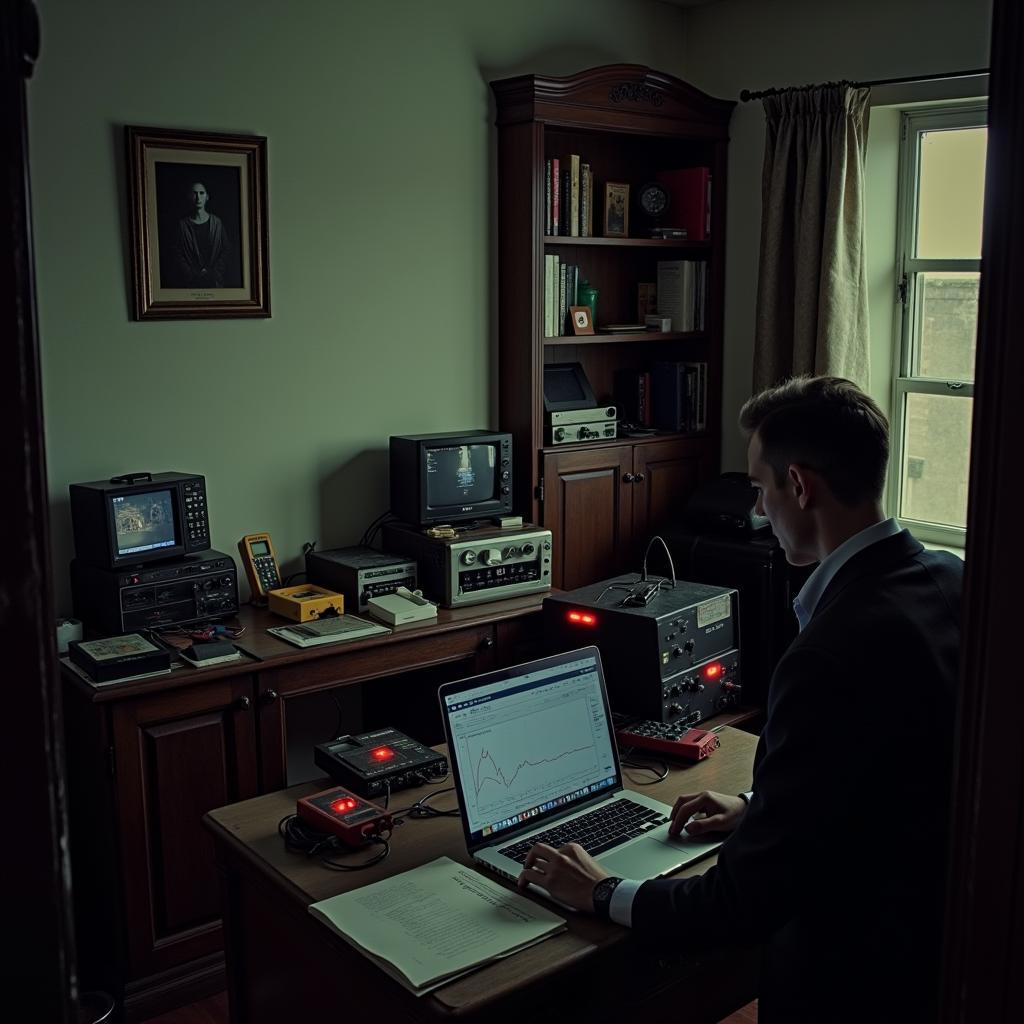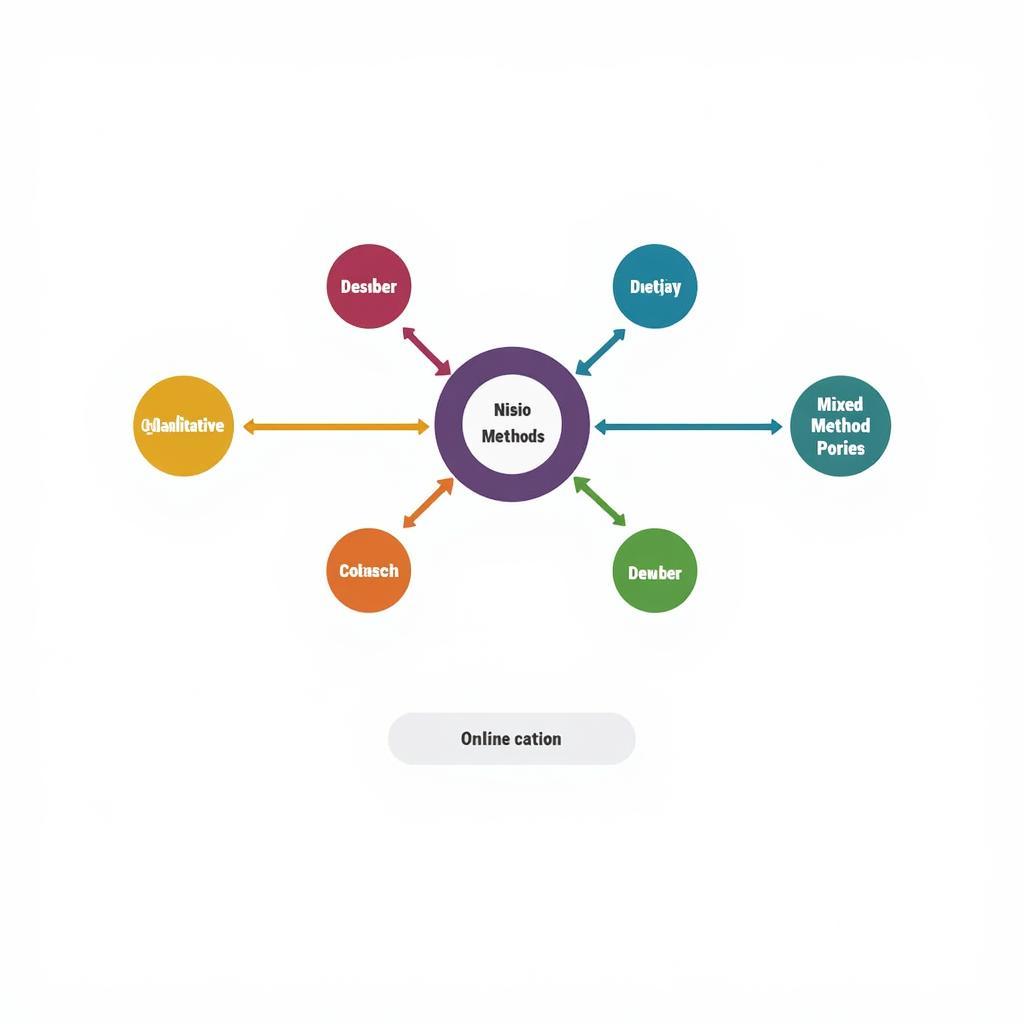Various Types Of Research methodologies exist, each designed to answer specific questions and unravel mysteries, both in the tangible world and the realm of the paranormal. Understanding these different approaches is crucial for anyone seeking to explore the unknown, whether you’re a seasoned paranormal investigator or simply curious about the world around us. Choosing the right research method is the first step towards uncovering meaningful insights and drawing valid conclusions.
Research isn’t just about collecting data; it’s about asking the right questions. Like a detective piecing together clues, a researcher must carefully select the most appropriate investigative tools. From quantitative surveys to qualitative interviews, each type of research offers a unique lens through which to view the world. What works for studying the effects of electromagnetic fields on paranormal activity might not be suitable for analyzing historical accounts of ghostly encounters. Therefore, understanding the strengths and limitations of each research method is essential. For example, background research, as discussed in this example of background question in research, lays the foundation for a strong investigation.
Exploring Quantitative Research Methods
Quantitative research deals with numbers, focusing on measurable data and statistical analysis. This approach is particularly useful when investigating phenomena that can be quantified, such as the frequency of paranormal occurrences in a specific location. Surveys, experiments, and statistical analysis are common tools used in quantitative research.
Surveys and Statistical Analysis
Surveys allow researchers to collect data from a large sample size, providing valuable insights into trends and patterns. For instance, a survey could be used to explore public beliefs about paranormal phenomena, gathering data on demographics and experiences. Statistical analysis helps researchers interpret this data, identifying correlations and drawing statistically significant conclusions.
Delving into Qualitative Research Methods
Qualitative research focuses on in-depth understanding of experiences, perspectives, and meanings. This approach is ideal for exploring the subjective nature of paranormal experiences, delving into the “why” and “how” behind reported phenomena. Interviews, case studies, and ethnographic studies are key methods used in qualitative research.
Interviews and Case Studies
Interviews provide rich, nuanced data, allowing researchers to explore individual experiences in detail. For example, interviewing witnesses of a haunting can provide valuable insights into the nature of the event. Case studies offer in-depth analyses of specific paranormal events, examining the context, evidence, and potential explanations.
 Paranormal Investigator Conducting an Interview
Paranormal Investigator Conducting an Interview
Mixed Methods Research: A Holistic Approach
Mixed methods research combines both quantitative and qualitative approaches, offering a more comprehensive understanding of the subject matter. This approach can be particularly valuable in paranormal research, where both measurable data and subjective experiences are important. For instance, a researcher might combine survey data with in-depth interviews to explore the relationship between belief in the paranormal and reported experiences.
Combining Quantitative and Qualitative Data
By combining different research methodologies, investigators can gain a more holistic understanding of the phenomenon under investigation. This approach allows researchers to triangulate their findings, strengthening the validity and reliability of their conclusions.
Specific Research Methods in Paranormal Investigation
Certain research methods are particularly relevant to the field of paranormal investigation. These include experimental research, historical research, and ethnographic studies. Choosing the right approach depends on the specific research question and the nature of the phenomenon being investigated.
Experimental Research and Ethnographic Studies
Experimental research involves manipulating variables to test hypotheses. In paranormal research, this might involve conducting controlled experiments to investigate the effects of electromagnetic fields on paranormal activity. Ethnographic studies involve immersing oneself in a particular culture or community to understand their beliefs and practices related to the paranormal.
 Paranormal Experiment Setup
Paranormal Experiment Setup
Choosing the Right Research Method
Selecting the most appropriate research method is crucial for the success of any investigation, especially in the field of paranormal research. Consider the research question, available resources, and the nature of the phenomenon being studied.
Matching Research Methods to Research Questions
The research question should guide the choice of methodology. For example, a question about the prevalence of belief in ghosts would be best addressed through a survey, while a question about the lived experiences of people who claim to have seen ghosts would be better suited to qualitative interviews. Considering career options like survey researcher jobs can shed light on the practical applications of these methods. Similarly, exploring opportunities at institutions like the Southwest Research Institute jobs can provide insights into various research fields.
Conclusion
Various types of research provide essential tools for exploring the unknown. By understanding the strengths and limitations of each approach, we can unlock the secrets of the paranormal and gain a deeper understanding of the world around us. Remember, the key to successful research lies in choosing the right method for the right question. The pursuit of knowledge requires a multifaceted approach, and embracing the various types of research empowers us to delve deeper into the mysteries that captivate us. Researching sensitive topics like those discussed in a domestic abuse research paper also benefits from a careful selection of research methodology. A good starting point is to define clear objectives example research.
 Diagram of Various Research Methods
Diagram of Various Research Methods
FAQ
- What is the difference between quantitative and qualitative research?
- What are some examples of mixed methods research?
- How do I choose the right research method for my paranormal investigation?
- What are the ethical considerations in paranormal research?
- What are some common challenges in conducting paranormal research?
- How can I analyze data collected from paranormal investigations?
- Where can I find more resources on paranormal research methods?
Need assistance with your Paranormal Research? Contact us 24/7: Phone: 0904826292, Email: research@gmail.com or visit us at No. 31, Alley 142/7, P. Phú Viên, Bồ Đề, Long Biên, Hà Nội, Việt Nam.